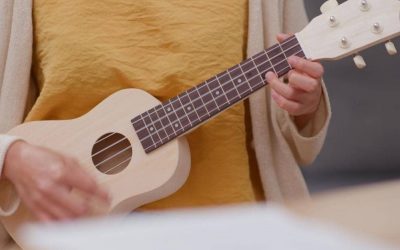If you’ve been taking piano lessons for a while and you’re still not making the progress you think you should, there could be several reasons for this. For people in this situation, it’s easy to think that not enough practice is the only reason for their lack of success, but the truth is that there are several other reasons why you might not be improving as you think you should.
In fact, it’s often a combination of factors that causes people to not sound as good as they think they should. Below are seven things you might want to keep in mind if you’re not playing like you want to.
1. Not Enough Practice Time
Okay, this is naturally the first thing that you have to consider when your practices aren’t producing the results you want. Let’s face it; it’s sometimes hard to fit in enough practice time, but for some people, practicing for short chunks of time five or six days per week works out better than practicing for longer periods of time only a few days a week.
Ideally, you’ll want to practice every day, or maybe six days a week, but practicing for seven hours a week every single week is difficult for a lot of people. Instead, try practicing for 10 to 15 minutes five or six days a week and see if that works out better for you. The shorter the time period between each practice session, the more productive your practices will be.
2. Your Music Is Too Difficult for Your Level of Expertise
When you’re learning to play the piano, it’s best to work up slowly to music that is more advanced. You can do this easily because music pieces are usually categorized as easy, intermediate, or advanced, especially if you find the right practice book or sheet music company. If you start out with music that is too difficult for you, you can quickly burn out on the piano and even get discouraged.
That will lead to quitting the piano altogether, and this isn’t good. Make sure that you’re playing music that is challenging but not too difficult, and set a goal of moving up slowly to more advanced pieces so that you’re always challenged enough but not too much.
3. You’re Not Playing the Right Kind of Music
The type of music that you’re playing can also affect how good you are at playing. Sometimes you’ll find music to a song you love and assume that you’ll also love playing that music, and you end up being wrong. On the other hand, sometimes a piece of music you don’t get that excited about ends up being one of your favorites.
If you’re playing a certain genre and your practices aren’t going like you hoped they would, try changing it and playing a different type of music instead. Trying out different genres is often the first step to improving your skills as a piano player.
4. Your Approach Is All Wrong
Learning to play the piano is possible several different ways. You can learn on your own, hire a private teacher, or learn through either an online course or a mobile app. It’s up to you, but whatever approach you take to learning the piano, if it’s the wrong one for you, it will directly affect how your practices are going.
To make the most out of each practice and improve on your skills so that you sound better and better each time you play, you may have to reevaluate your approach to learning to play the piano. If you hire a teacher, make sure that their teaching style matches your learning style. If you’re learning on your own, you might need to switch to a method that requires some accountability on your part.
5. You Practice Mindless Repetition
Practicing a piece of music until you master it is smart, but if you practice mindless repetition instead of smart repetition, it can definitely hinder your progress. In addition to practicing music that is on your level and moving up slowly to more difficult pieces, consider breaking up a challenging score into chunks and mastering one chunk at a time before you put everything together.
And once you have mastered a piece of music, move onto another piece that is a little more challenging than the one before. Just make sure that you’re mastering one piece of music before moving onto one that is more difficult.
6. You’re “Dropping” Pieces When They Get Too Hard
Sometimes piano players have a trail of tunes they’ve stopped practicing because they became too difficult. This isn’t good, but it can be avoided by simply sticking with each piece of music until you’ve mastered it. It’s tempting to leave a piece of music behind once it becomes challenging for you, but you’ll never learn anything if you give up too quickly.
When you run into music that is difficult to learn, push through the temptation to quit and try your best to learn that particular piece. If you do this regularly, you’ll progress with each practice just the way you should.
7. You Practice with Too Many Nearby Distractions
When you’re learning to play the piano, it’s easy to get distracted. Your cell phone may constantly notify you that you have another text message, your radio or television set may be blaring, or you may simply have too many things on your mind.
Before you practice, turn off the TV and radio, leave your cell phone in another room, and clear your mind so that practicing is the only thing you’re concentrating on. You have to be both physically and psychologically ready to practice each time, so clear your thoughts and the room of anything that might hinder your progress.
Learning to play the piano isn’t necessarily difficult, but you do have to commit to it in order to play well. If your practices don’t seem productive, there is always a reason why. It’s up to you to determine what those reasons are so that you can do something about it and finally play the piano like you deserve to be playing.






